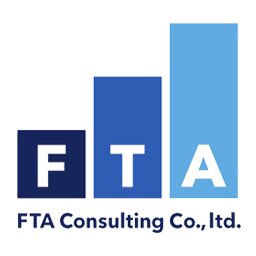Best Mining Law Lawyers in Chatuchak
Share your needs with us, get contacted by law firms.
Free. Takes 2 min.
List of the best lawyers in Chatuchak, Thailand
About Mining Law in Chatuchak, Thailand
Mining Law in Chatuchak, Thailand regulates the exploration, extraction, and management of mineral resources. While Chatuchak is primarily urban, activities such as sand, gravel, and clay extraction or any mining-related ventures must comply with national and local legal frameworks. The law is designed to protect the environment, ensure sustainable development, and safeguard community interests. Compliance with these laws is essential for anyone involved in mining activities, whether for business, academic research, or local development.
Why You May Need a Lawyer
There are several situations where legal advice or representation in Mining Law becomes crucial:
- Obtaining mining licenses or permits for resource extraction.
- Understanding compliance requirements for environmental protection and land use.
- Resolving disputes over land ownership or mineral rights.
- Navigating the renewal, transfer, or cancellation of mining permits.
- Defending against allegations of illegal mining or environmental violations.
- Negotiating contracts with landowners, contractors, or government agencies.
- Advising on mergers, acquisitions, or investment in mining projects.
Legal guidance ensures that your activities are within the legal framework and helps you avoid costly errors or litigation.
Local Laws Overview
Mining Law in Thailand is primarily governed by national laws, such as the Minerals Act, but specific zoning, land use, and environmental regulations enforced by local authorities in Chatuchak also play a significant role. Some key aspects include:
- Local permission is required for any mineral exploration or commercial extraction within the district.
- There are strict regulations that prohibit mining operations in protected or residential areas, which largely defines the urban landscape of Chatuchak.
- Any extraction activity must undergo environmental assessment and follow mitigation guidelines.
- Community consultation may be required when activities impact local residents.
- Breach of these regulations can result in fines, project shutdowns, or legal action.
It is essential to thoroughly review both national and Chatuchak-specific laws before starting any mining activity.
Frequently Asked Questions
What types of mining activities require a permit in Chatuchak?
Any extraction or exploration of minerals, including gravel, sand, or clay, requires official permission, even in small-scale projects.
Is commercial mining common in Chatuchak?
Due to its predominantly urban character, large-scale mining is uncommon. Most activities relate to construction materials or land development.
How do I apply for a mining permit in Chatuchak?
Applications must be submitted to the Department of Primary Industries and Mines, often accompanied by environmental and zoning reviews by local authorities.
What are the penalties for illegal mining?
Unlicensed mining can result in severe penalties, including fines, equipment confiscation, and possible imprisonment.
Are there environmental regulations connected to mining?
Yes, all mining activities must comply with national environmental laws and local guidelines, including conducting environmental impact assessments if applicable.
Can mining rights be transferred or inherited?
Mining rights may be transferred or inherited, but the process requires approval from both national and local offices and must comply with all regulations.
What role do local communities play in mining decisions?
Community input is often required, especially if projects have significant social or environmental impacts. Public hearings or community meetings may be organized.
Can foreigners own mining rights in Chatuchak?
Foreign ownership is restricted and subject to approval from relevant authorities. Joint ventures with Thai nationals or entities may be possible under certain conditions.
What are common legal disputes in mining law?
Disputes commonly arise over land ownership, environmental concerns, contract breaches, and rights to mineral resources.
How can a lawyer help with environmental compliance?
A lawyer can help interpret regulatory requirements, prepare documentation, and ensure your mining activities meet all environmental laws, reducing the risk of violations.
Additional Resources
If you need more information or official guidelines, consider reaching out to the following organizations:
- Department of Primary Industries and Mines - Ministry of Industry
- Bangkok Metropolitan Administration (BMA) Environmental and Mining Services
- Office of Natural Resources and Environmental Policy and Planning (ONEP)
- Law Society of Thailand for legal professional contacts
- Local administrative offices in Chatuchak for zoning and land use approvals
Next Steps
If you need legal assistance in Mining Law in Chatuchak, Thailand, start by gathering all documentation related to your project or situation. List your questions or concerns, and contact a qualified lawyer with experience in mining and environmental law in Thailand. Arrange an initial consultation to discuss your objectives and ensure you fully understand the legal requirements and risks. Using official channels and professional legal help will lessen complications and protect your interests as you proceed.
Lawzana helps you find the best lawyers and law firms in Chatuchak through a curated and pre-screened list of qualified legal professionals. Our platform offers rankings and detailed profiles of attorneys and law firms, allowing you to compare based on practice areas, including Mining Law, experience, and client feedback.
Each profile includes a description of the firm's areas of practice, client reviews, team members and partners, year of establishment, spoken languages, office locations, contact information, social media presence, and any published articles or resources. Most firms on our platform speak English and are experienced in both local and international legal matters.
Get a quote from top-rated law firms in Chatuchak, Thailand — quickly, securely, and without unnecessary hassle.
Disclaimer:
The information provided on this page is for general informational purposes only and does not constitute legal advice. While we strive to ensure the accuracy and relevance of the content, legal information may change over time, and interpretations of the law can vary. You should always consult with a qualified legal professional for advice specific to your situation.
We disclaim all liability for actions taken or not taken based on the content of this page. If you believe any information is incorrect or outdated, please contact us, and we will review and update it where appropriate.










